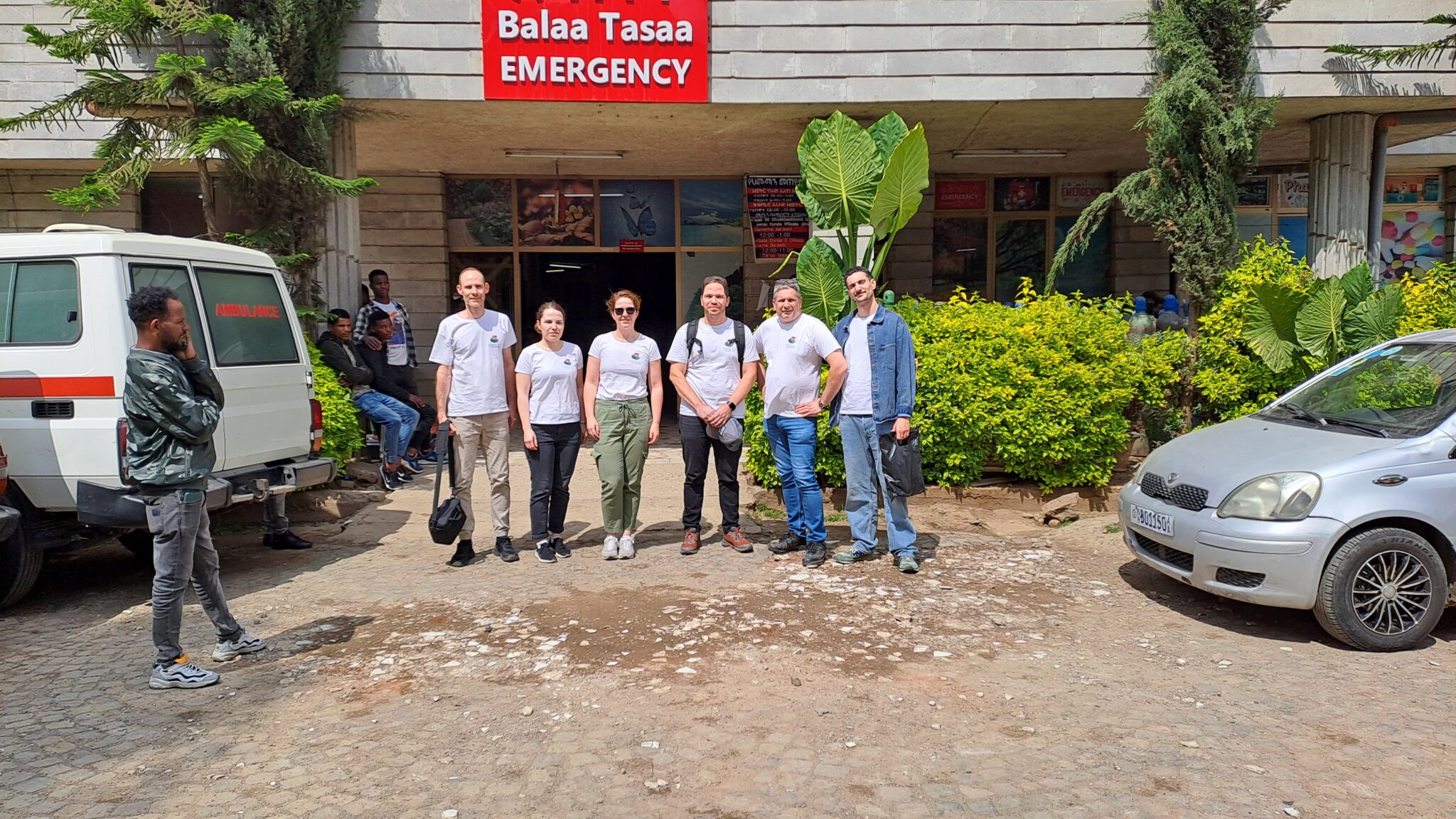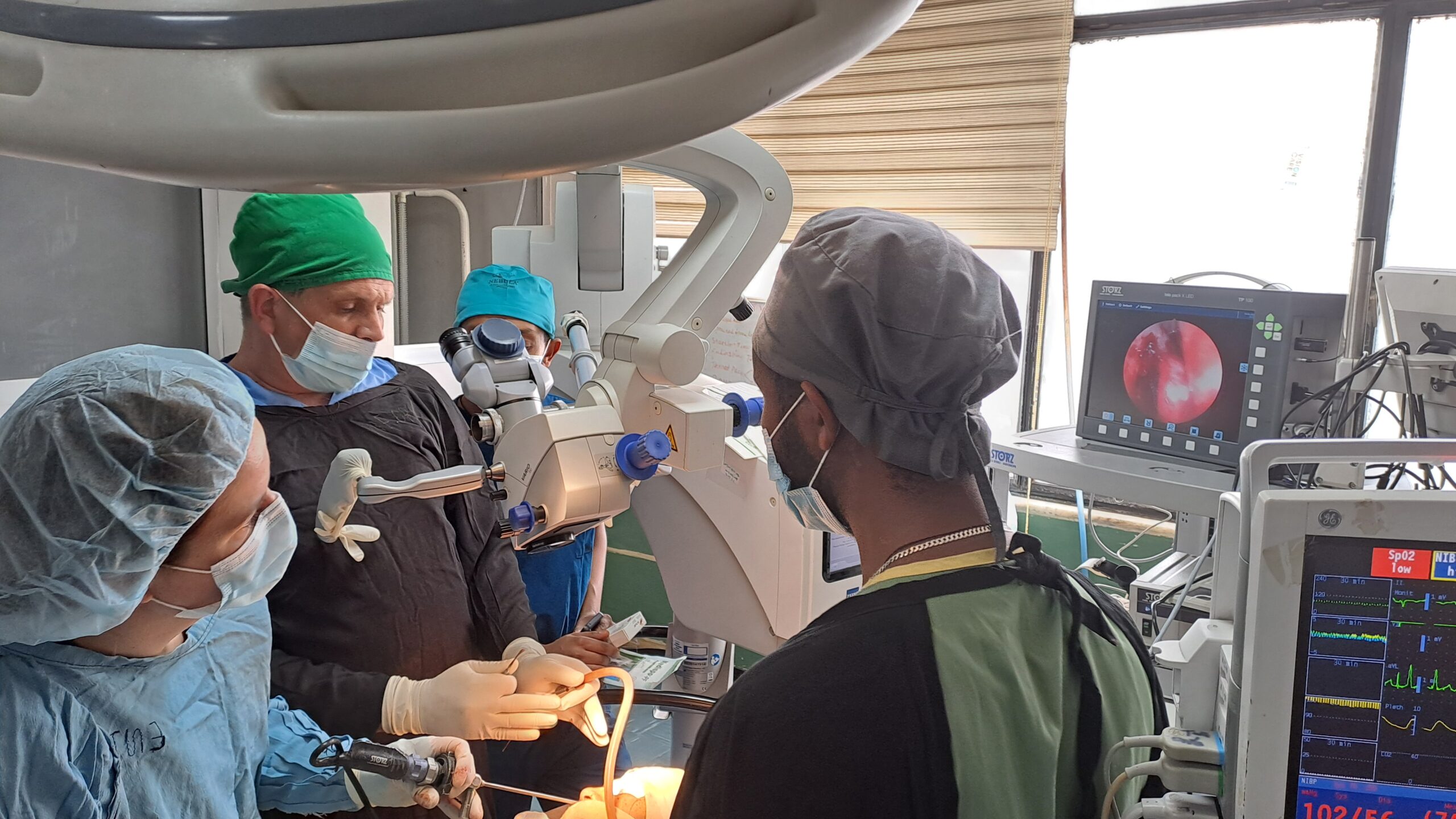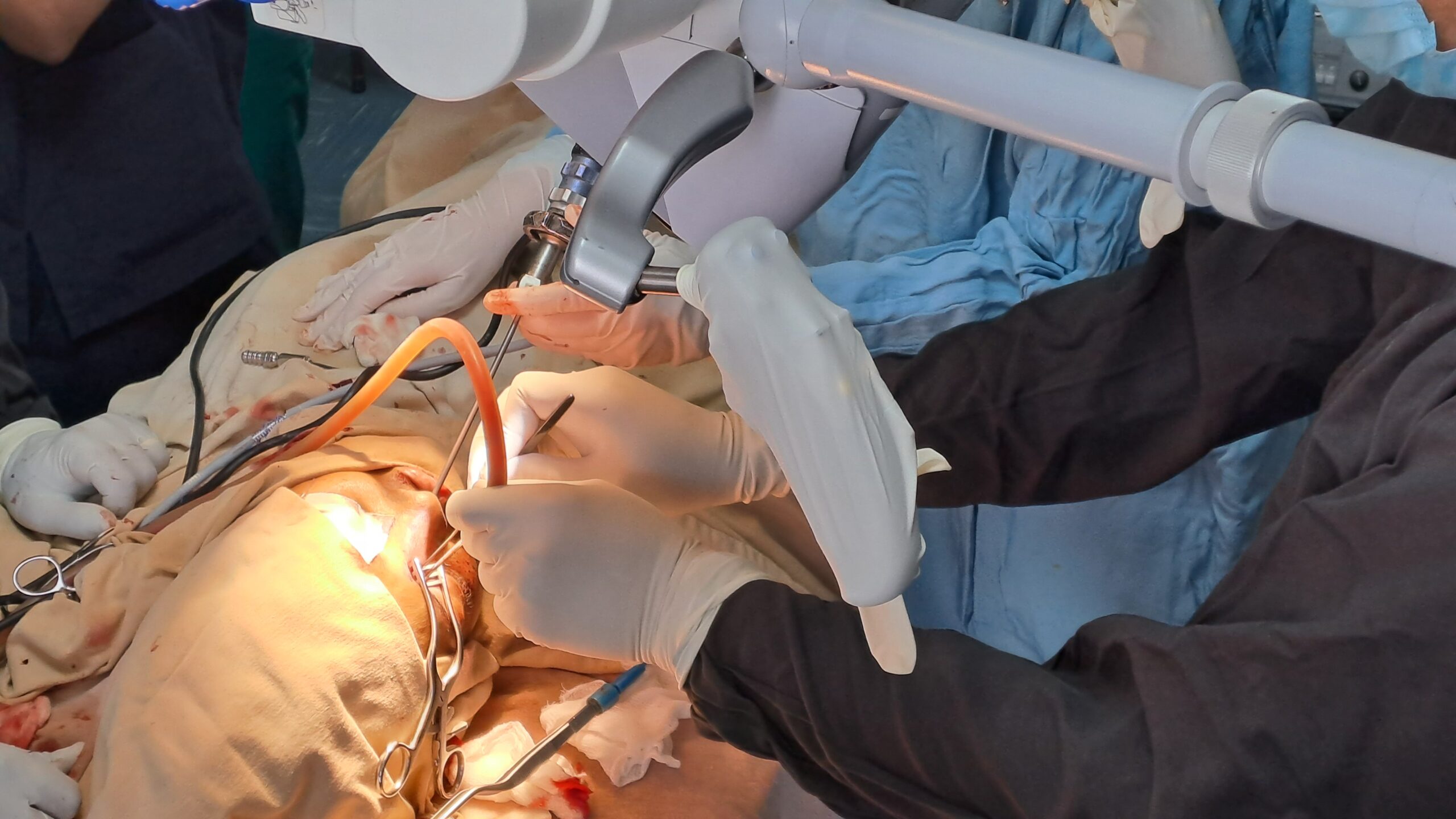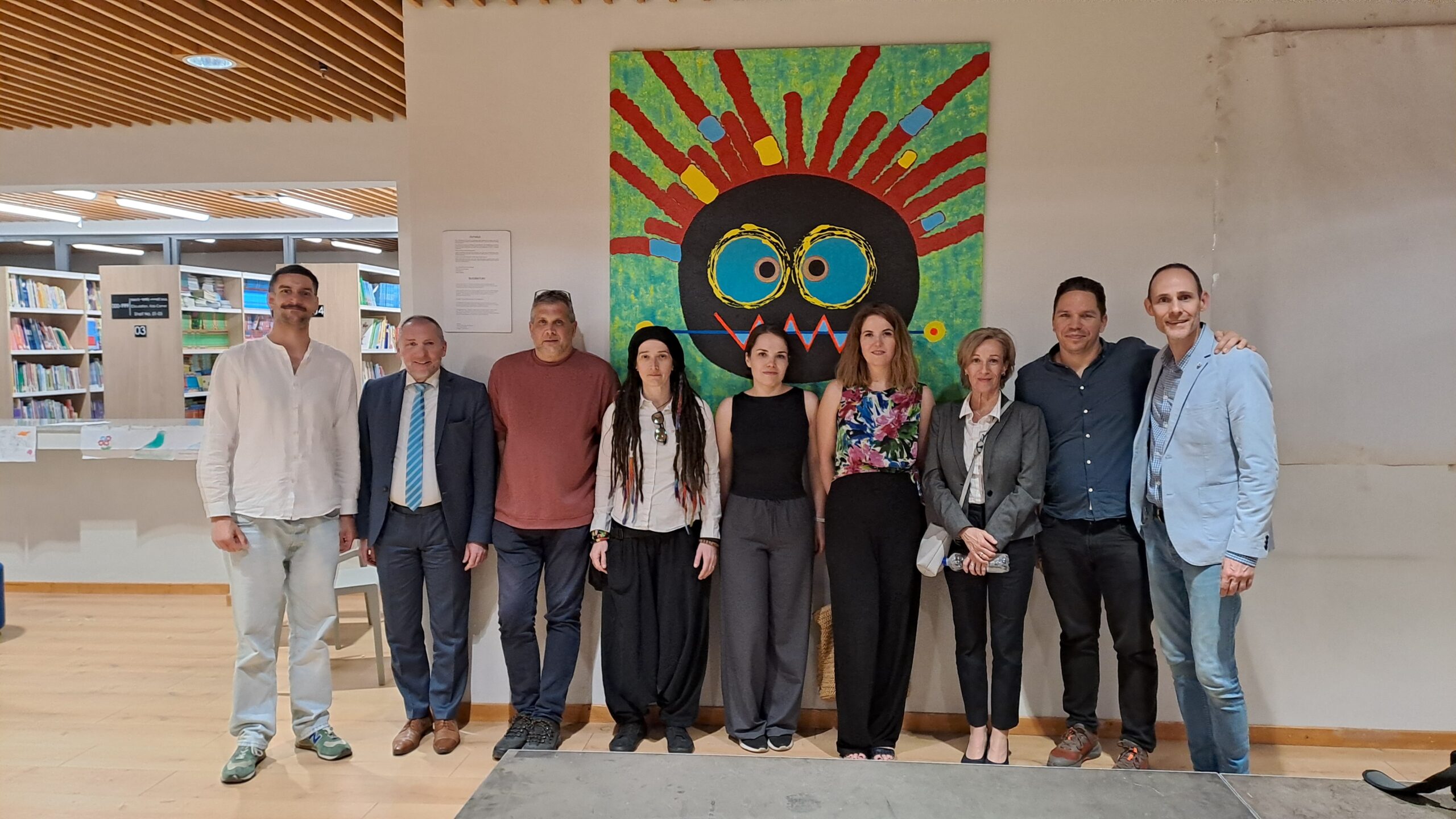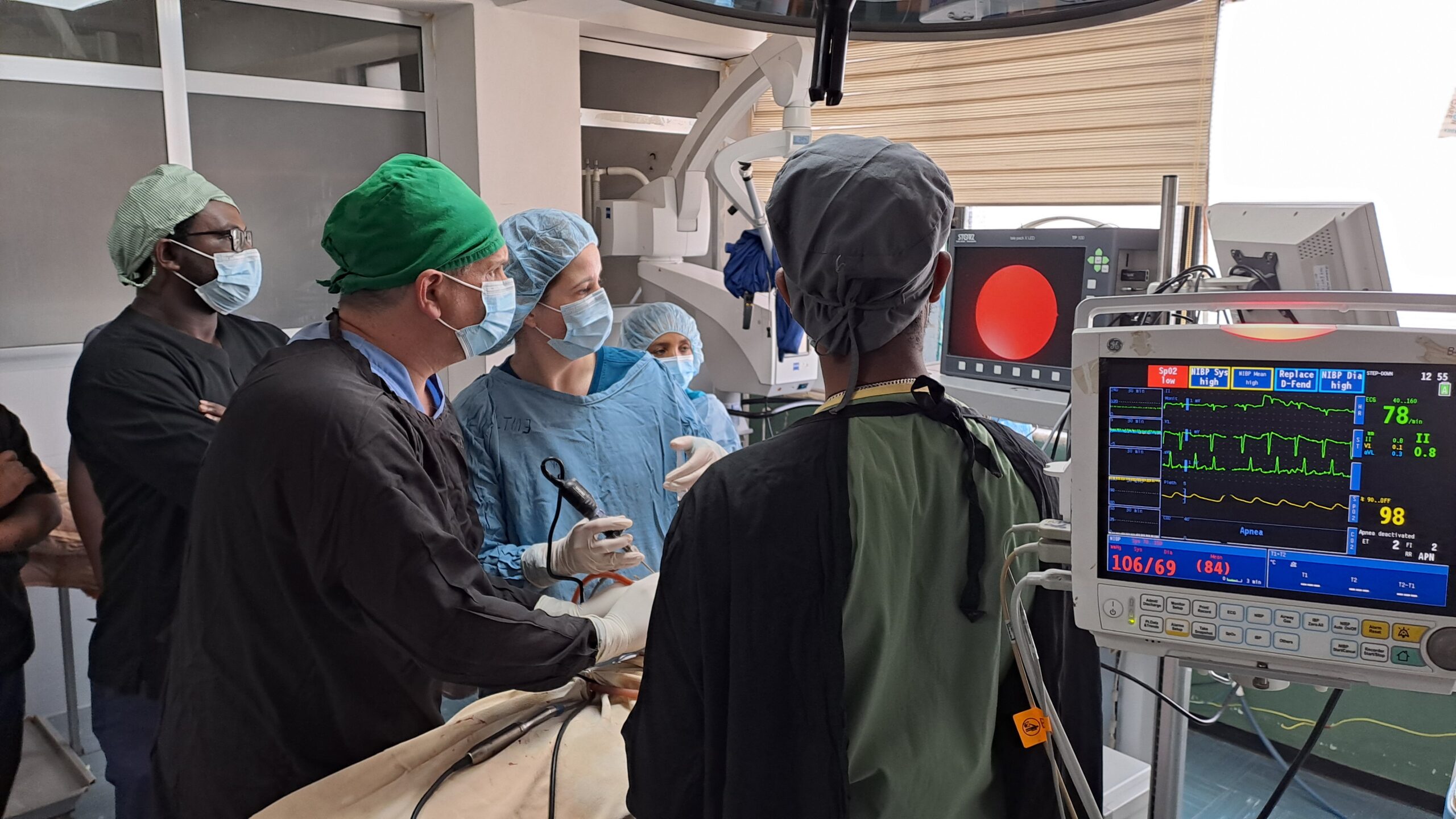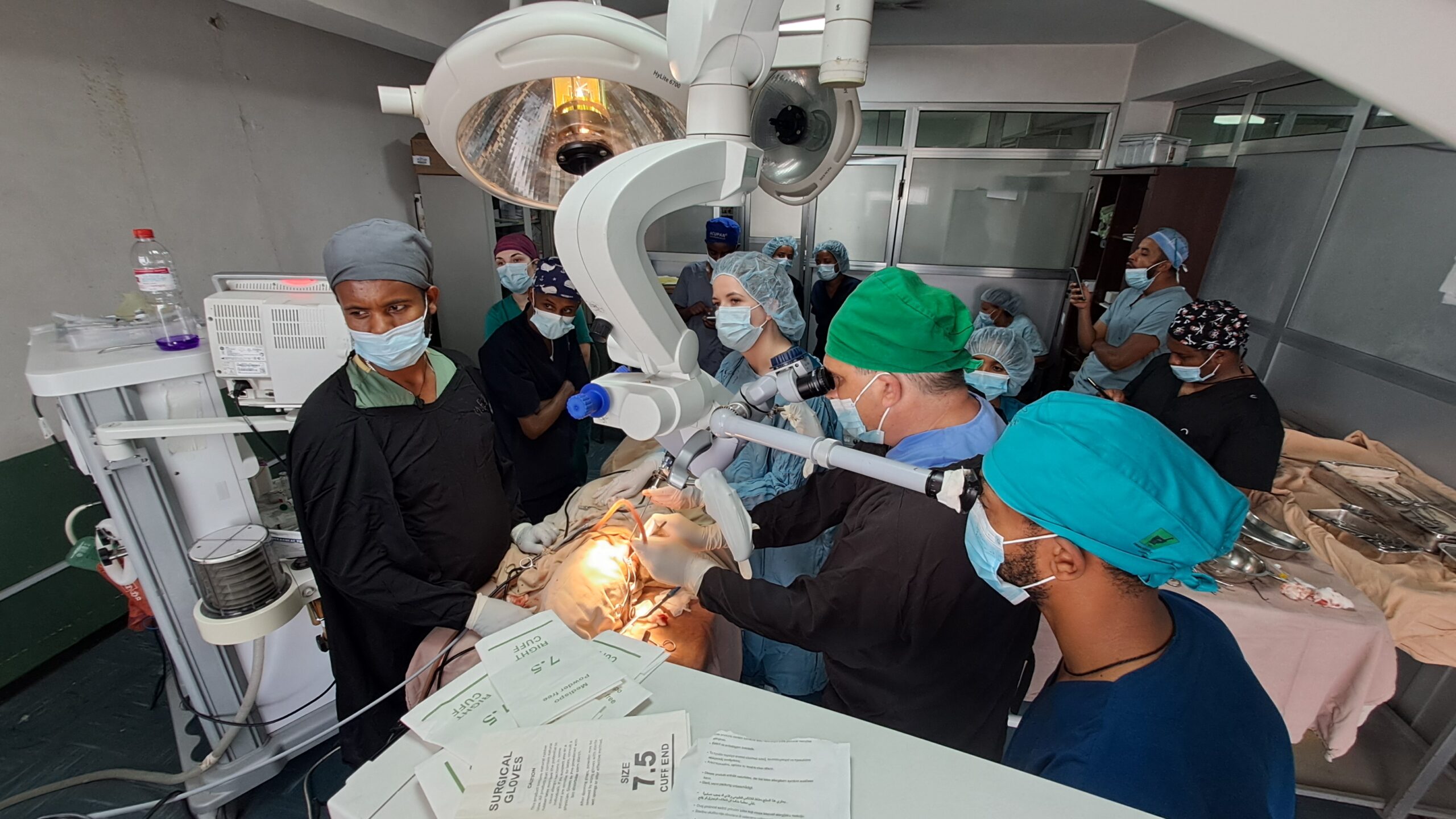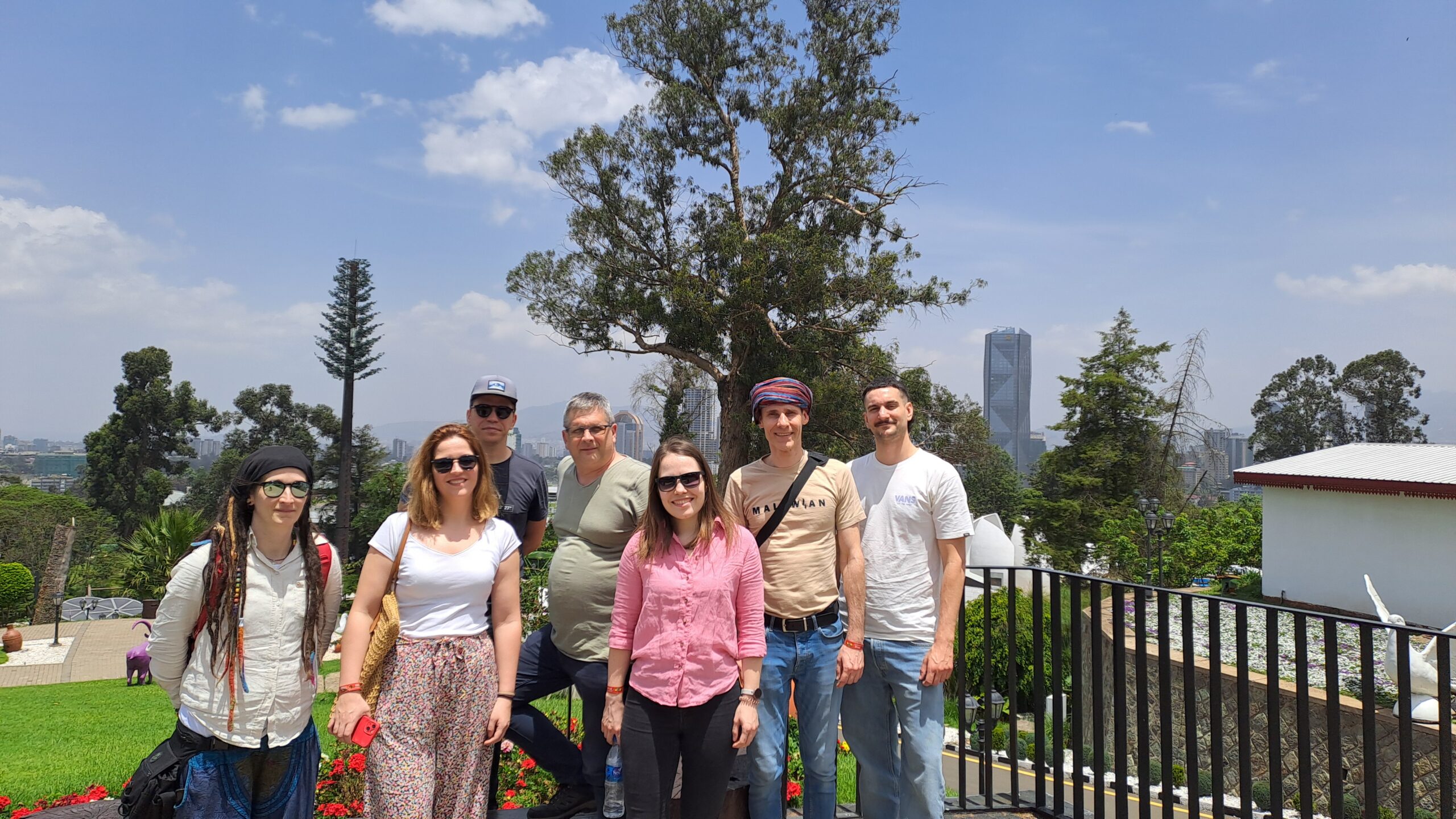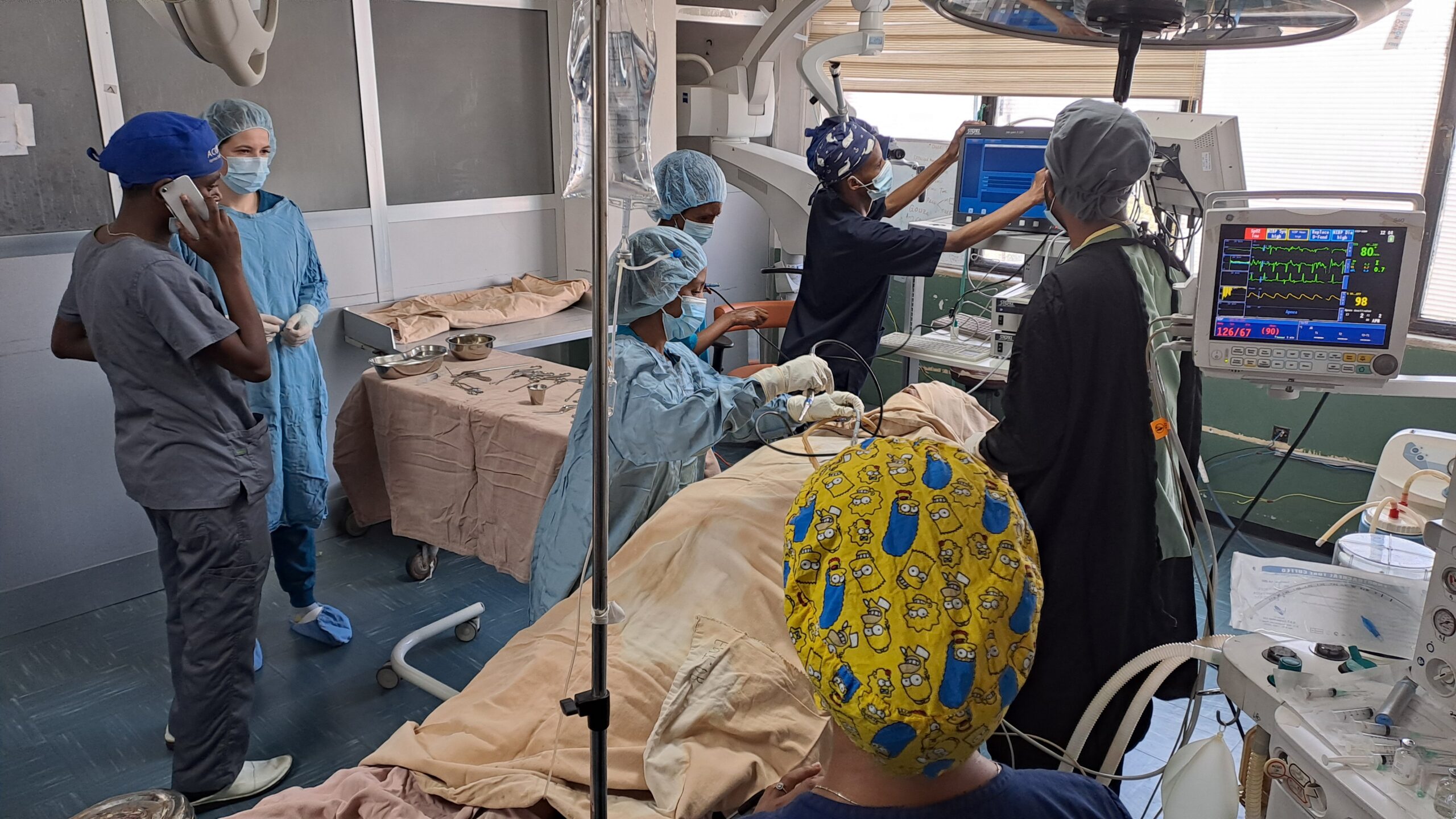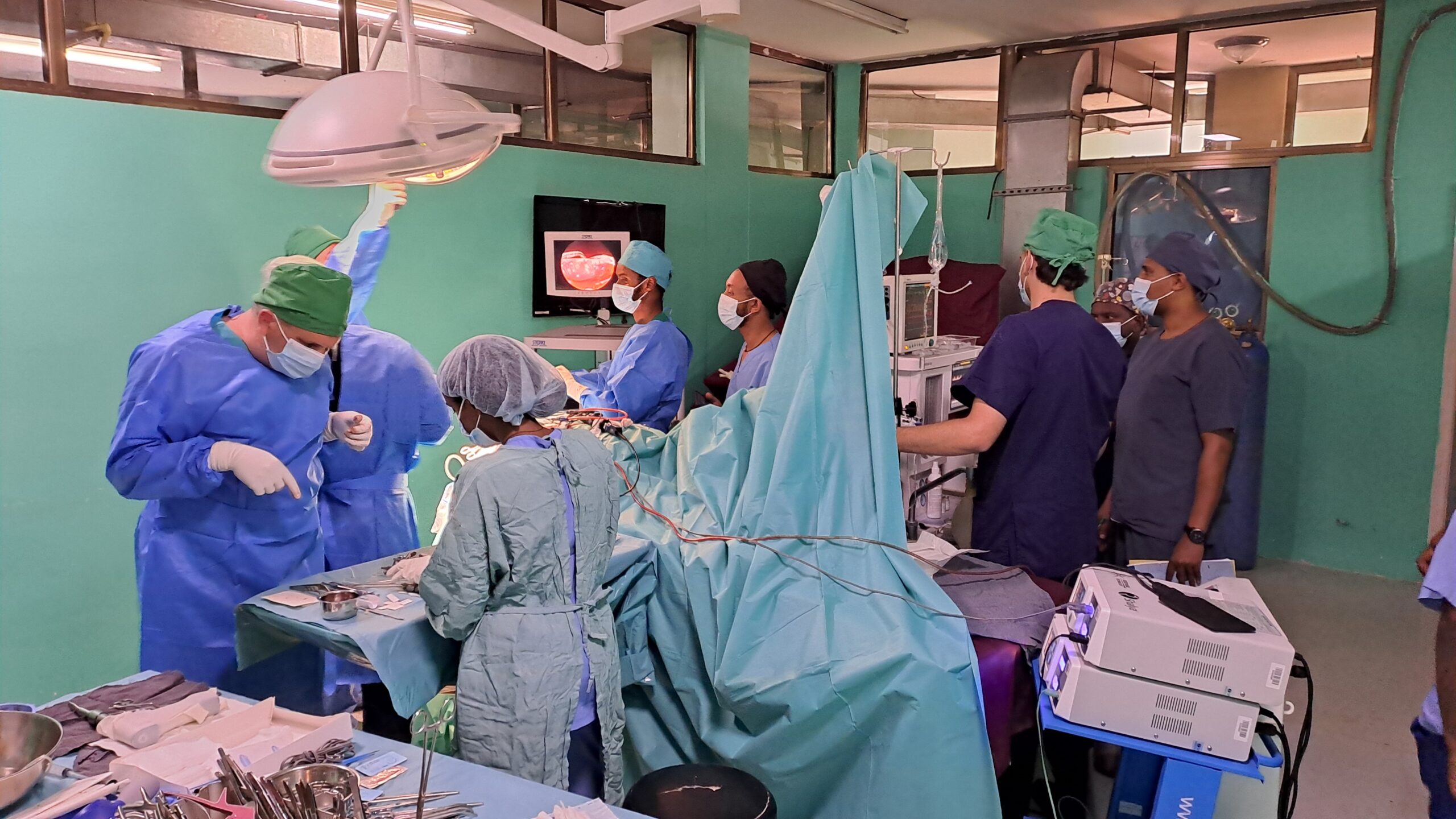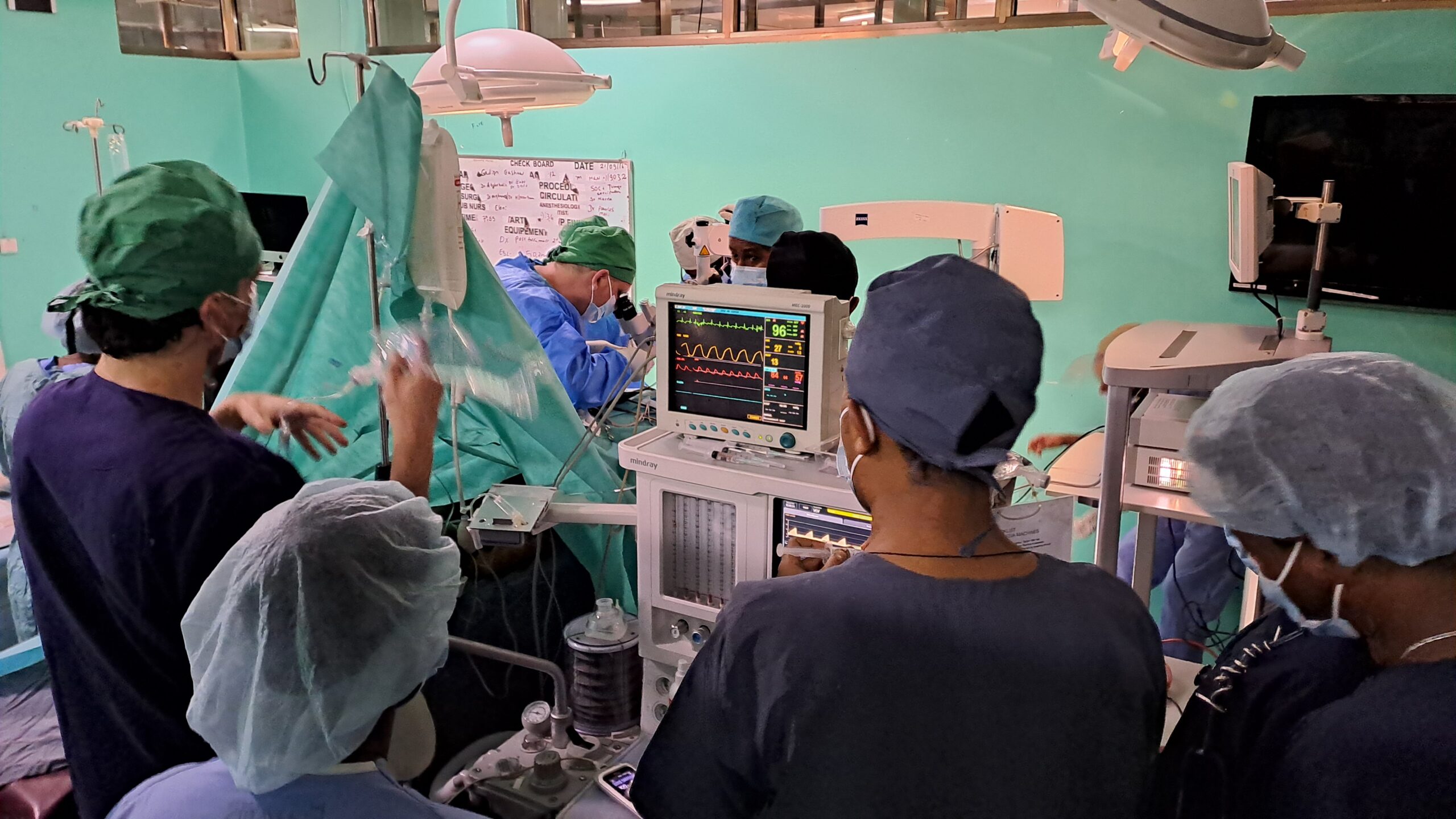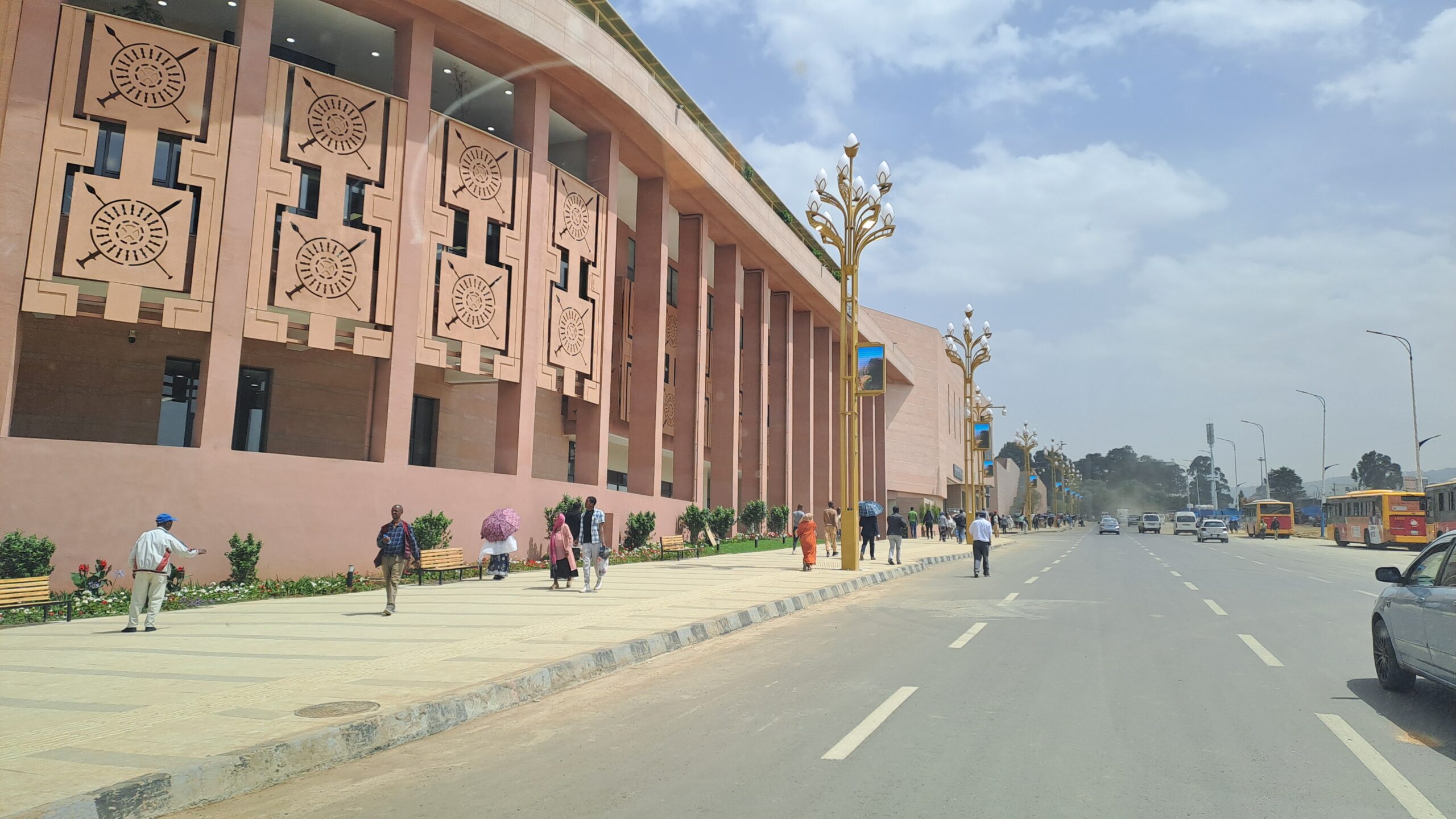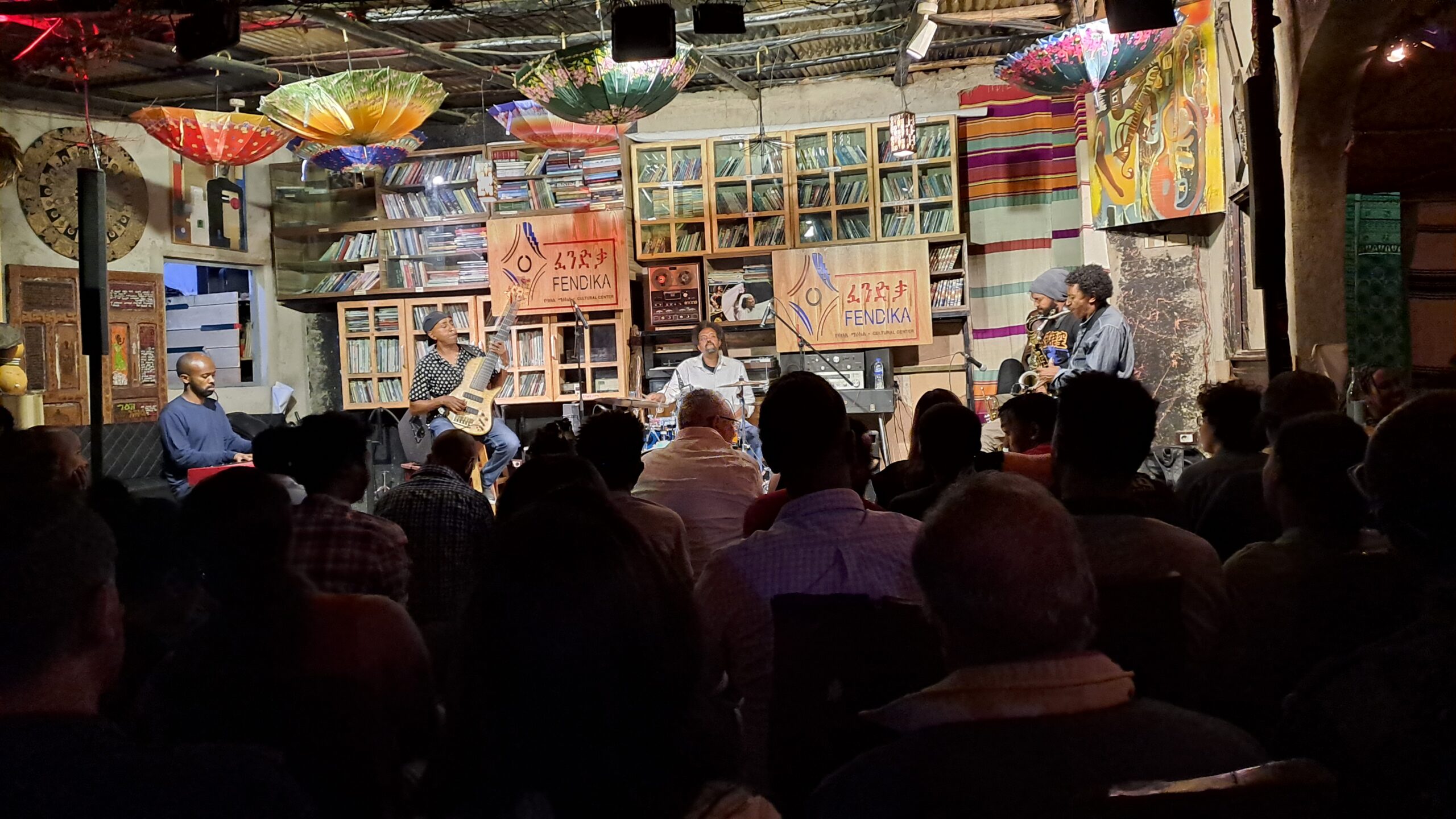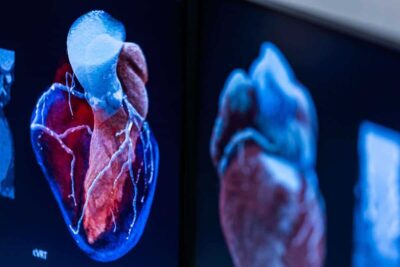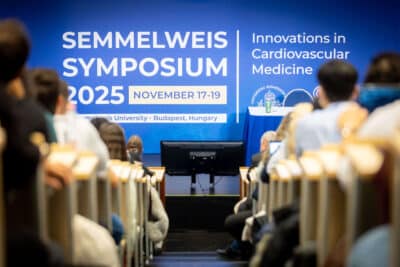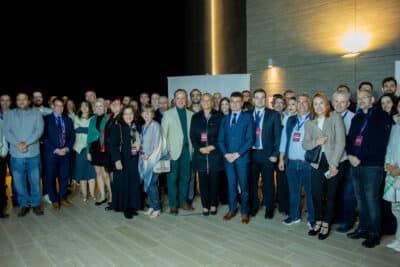Dr. Gábor Nagy, Head Physician of the Department of Skull Base and Vascular Neurosurgery; Dr. Dávid Nagy, Neurosurgery Specialist at the Department of Neuro-Oncology; and Dr. Máté Bata, Anesthesiology Specialist at the Central Department of Anesthesiology and Intensive Care traveled to Addis Ababa University teaching hospital as part of a seven-member team on a two-week medical mission to Ethiopia. The mission was organized by Planetrise Association for Culture and Environmental Protection with the financial support of the Hungary Helps Program and the organizational and communication assistance of the Embassy of Hungary in Addis Ababa.
Semmelweis University provided around HUF 5,000,000 worth of equipment and medication for the program. As Dr. Gábor Nagy told our website:
We packed five suitcase-loads of anesthesia and surgical equipment, medicine, hemostatic agents, and instruments, partly based on a list compiled by Ethiopian specialists, but also on our experience from previous medical missions to Malawi of what we would need to perform the operations safely.
Since 2017, Dr. Gábor Nagy and Dr. Dávid Nagy have participated in four medical missions to Africa. Their experience has also proved useful in Ethiopia. However, this time the aim was to transfer knowledge and start developing a professional training program, rather than to operate on as many patients as possible, as was the case in Malawi. “In Ethiopia, the emphasis was on collaboration, the locals were motivated, open, and eager to learn: There was hardly a surgery that did not involve a local head physician scrubbed in,” said Dr. Gábor Nagy, adding that he was optimistic about the future.
Ethiopia does not offer a health insurance system similar to the Hungarian one, so the equipment needed for hospital care and surgery is bought by the patient or their relatives and brought to the hospital in a huge bag. Should it turn out during surgery that the equipment is not suitable or is broken, the family goes out to buy a new one, until then the surgery is put on hold, as the participants recalled the special circumstances. In some cases, the family might even purchase an unnecessary device, such as a central cannula, and would insist on having it implanted as they have already paid for it. One of the most surprising experiences for Dr. Máté Bata, a first-time participant in the African mission program, was how the system could somehow function with such limited investment and organization. “Only the simplest type of equipment was available, for example, for scrubbing in, we had to use the block soap from the nearby convenience store and 70 percent alcohol,” Dr. Dávid Nagy noted. “At the same time, the hemostatic agents brought from Hungary were a huge success, but we were mainly trying to show how to get the most out of the local equipment, added Dr. Gábor Nagy. He also explained that as first-generation Ethiopian neurosurgeons were trained in Norway, high-tech instruments were available as a Norwegian donation; however, these could only be used until breakdown due to lack of service.
The spectrum of neurosurgical care in a developing country is quite different from that in Western, developed countries. Without oncological care – patients have to wait two years for radiotherapy – there is no point, for example, in operating on a malignant brain tumor even if it is medically justified because there is no follow-up treatment available. Degenerative spine conditions are rare, which, along with cancers, account for the most common neurosurgical procedures in developed countries. Accident and trauma patients are operated on, as well as benign brain tumors: These cases have been collected for us, too. Since benign brain tumors can also eventually lead to death, blindness, or paralysis, it is important to operate on them, so it would be worth training Ethiopian neurosurgeons for this as well. “This is exactly what we did in the Addis Ababa hospital,” said Dr. Gábor Nagy. He noted that pituitary gland surgery, which required the cooperation of related professions, was also still unavailable in Ethiopia, although, based on the Hungarian surgical statistics, up to 5,000 such procedures per annum would be needed in Ethiopia, which has a population of 120 million.
All mission participants agreed that a high degree of flexibility was needed to work in the field, but with this and sufficient preparation, they overcame many technical shortcomings and adapted to working in such conditions. A total of 13 surgeries were performed in two weeks, most of these were large-scale operations of which two could have been done in one day in Hungary, but this was not possible in the local circumstances. Ethiopian doctors reported that they needed three times as much time as Hungarian neurosurgeons to perform similar operations.
Anesthesiologist Dr. Máté Bata said that the trip presented him with challenges he had not encountered back home, thus broadening his perspective both personally and professionally:
To work with Ethiopian colleagues, to get closer to their lives, their society, and their culture, to sit with them in the doctors’ lounge, to roast coffee in a pot, then grind, brew, and drink it together, was a unique experience.
Although they all had to step out of their comfort zone, the cultural, musical evenings and jazz performances were among the highlights of their stay.
“During the mission, we managed to make a positive impression on the locals, they were very friendly and open to us, and appreciated our two-week stay. They are ready to continue our collaboration. They would also like to come to Hungary as observers to learn,” said Dr. Dávid Nagy. According to Dr. Gábor Nagy, it would be worth considering a targeted mission in the future, focusing on pituitary gland surgery training, but further consultation is needed on the necessary framework. As a first step towards future cooperation, the director, the head of the department, and two specialists of the Addis Ababa hospital were invited to the neurosurgery conference in Budapest to be held in the autumn.
Participants of the seven-member mission:
From Semmelweis University: Neurosurgeons Dr. Gábor Nagy and Dr. Dávid Nagy, anesthesiologist Dr. Máté Bata; from Heim Pál National Pediatric Institute: ENT specialist Dr. Edina Pálinkás; from the University of Pécs: ENT specialist Dr. Péter Kinga Jakab, Africa researcher Dr. Marianna Kármán, and Dr. Csaba Szeremley, photographer and organizer.
Anita Szepesi, Melinda Katalin Kiss
Translation: Judit Szabados-Dőtsch
Photos by Csaba Szeremley – University of Pécs
